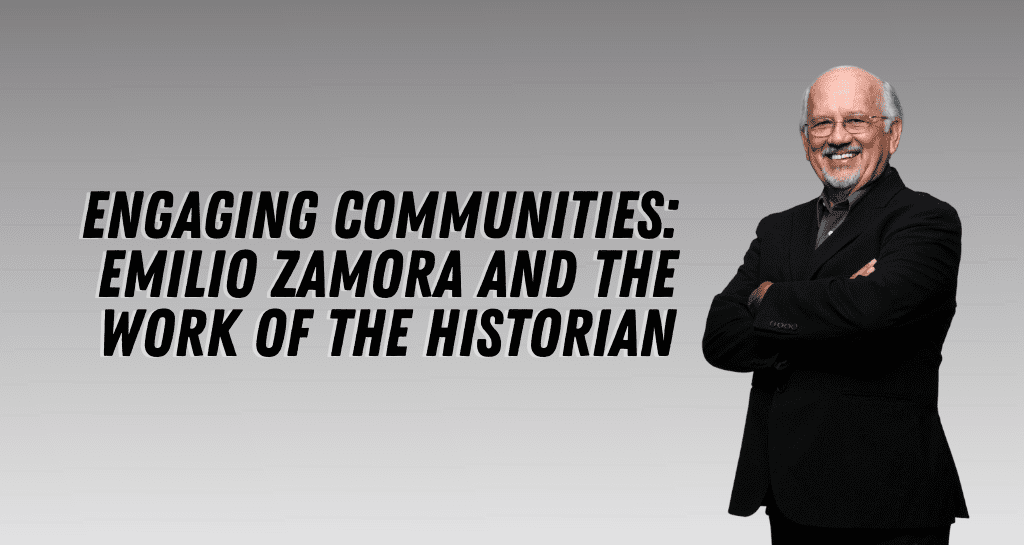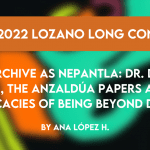In April 2021, Professor Emilio Zamora was honored with the Roy Rosenzweig Distinguished Service Award from the Organization of American Historians. The citation was as follows:
Recognizing a stellar career as an academic historian, and an equally stellar record as a public interpreter of the American past for communities across Texas, the Organization of American Historians presents Professor Emilio Zamora, University of Texas at Austin, with the OAH Roy Rosenzweig Distinguished Service Award. Professor Zamora is not only an award-winning researcher and writer but also a visible scholar-citizen who has made significant contributions to the public understanding of Mexican American people in Texas.
Emilio Zamora has roots in the Mexico-Texas region dating back to the 1700s, growing up and educating himself on both sides of the border. His research interests include the history of Mexicans in the United States and their relationship with Mexico, as well as oral history, the history of the U.S. working class, Texas history, and the archival enterprise in Texas and northern Mexico. Dr. Zamora has single-authored three books, co-edited three anthologies, assisted in the production of a Texas history text, co-authored a Texas history text for high schools, co-edited an Ebook on Tejano history, translated and edited a World War I diary, and written numerous scholarly articles, chapters, and essays. He has received seven best-book awards, a best-article prize, and a Fulbright García-Robles fellowship. Zamora is a lifetime member of the Texas Institute of Letters, a lifetime Fellow with the Texas State Historical Association, and a former member of the Board of Directors and a former president of the Texas State Historical Association.
In recognition of his many contributions to the pursuit of historical knowledge and his work as a public-facing scholar, intellectual, and educator, the Organization of American Historians is proud to present Emilio Zamora with the OAH Roy Rosenzweig Distinguished Service Award.
See also the announcement from the Department of History.
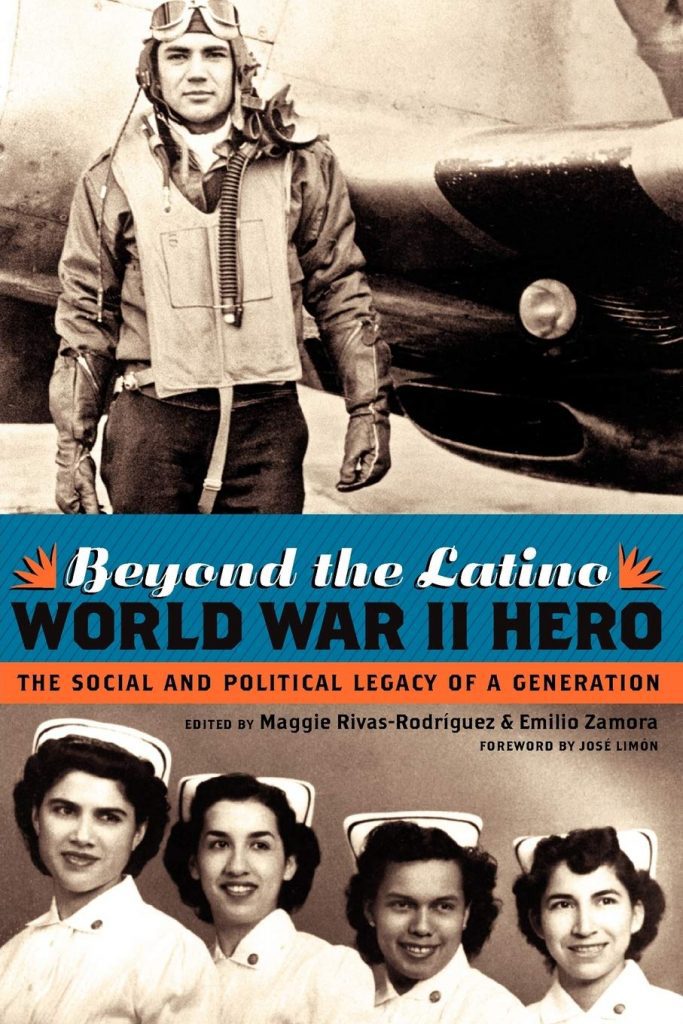
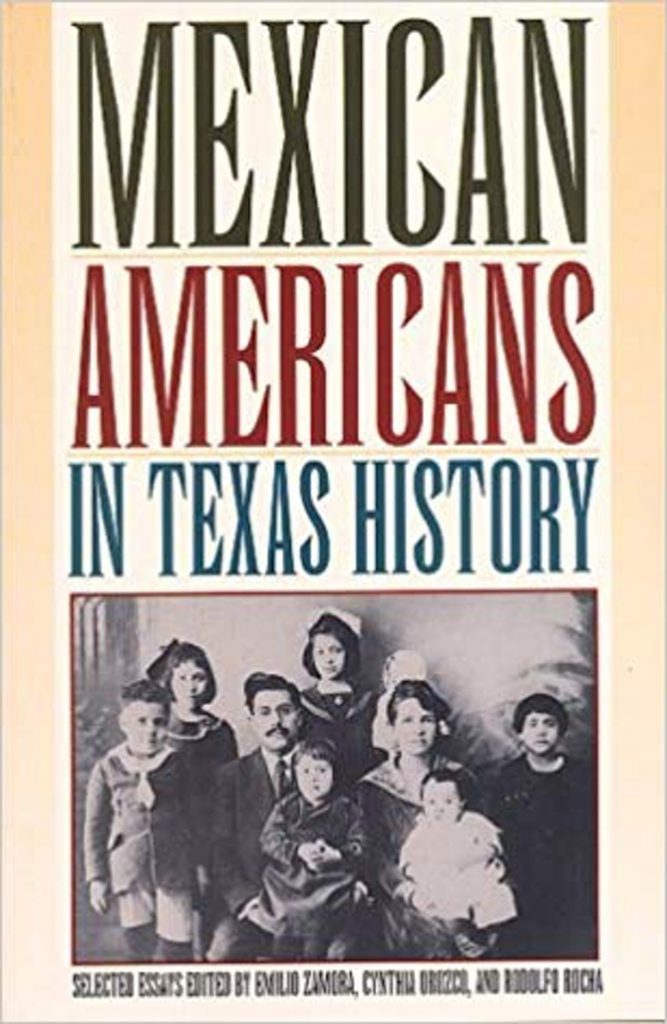
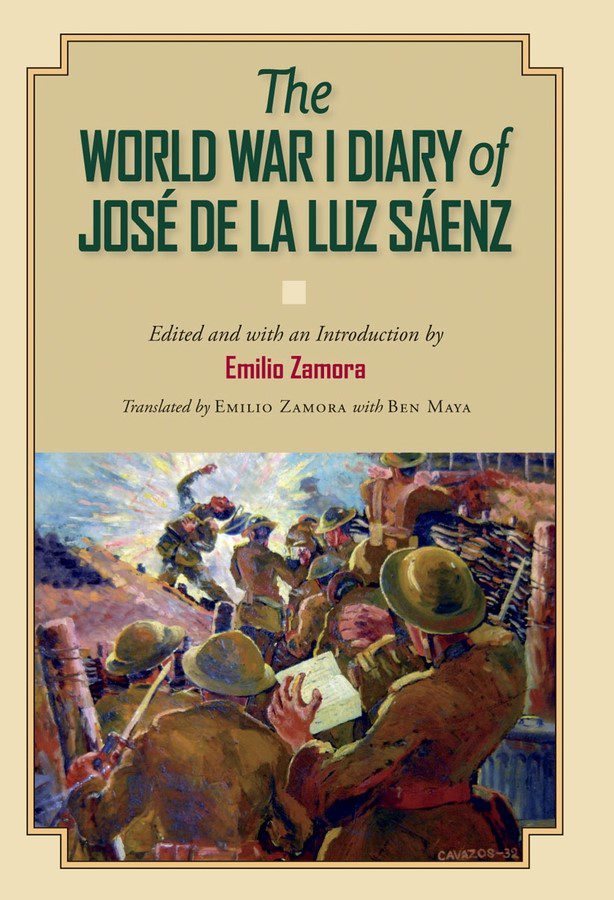
As the citation makes clear, Dr. Zamora’s achievements defy quick summary. He holds a George W. Littlefield Professorship in American History at UT and is an affiliate with the Center for Mexican American Studies and the Lozano Long Institute of Latin American Studies at the same institution. Zamora writes and teaches on the history of Mexicans in the United States, Texas history and oral history, and focuses on the working class and transnational experiences of Mexicans in Texas during the twentieth century. His latest awards include: the 2017 Scholar of the year from the National Association for Chicana and Chicano Studies (NACCS), the 2017 NACCS Tejas Foco Premio Estrella de Aztlán Lifetime Achievement Award, the 2019 Ruth A. Allen Pioneer in Texas Working Class History Award from the Texas Center for Working-Class Studies, Collin College and of course the OAH award. Zamora is a lifetime member of the Texas Institute of Letters, a lifetime Fellow with the Texas State Historical Association (TSHA), and a past-President of TSHA in 2019-20, including membership in the organization’s Executive Committee. He has served as a member of the Board of TSHA, and is on the Advisory Committee of the University of Texas’ Voces Oral History Project, the Advisory Board of the Recovering the U.S. Hispanic Literary Project, the University of Houston, and the Editorial Board of the U.S. Latino Oral History Journal. His community engagement record includes current membership in the Patronato of the Mexican American Civil Rights Institute at Our Lady of the Lake University at San Antonio, and past membership on the Advisory Board of Austin’s Emma S. Barrientos Mexican American Cultural Center (ESB-MACC)and Austin’s Hispanic/Latino Quality of Life Commission. Zamora is also a founding and continuing member of Nuestro Grupo, the sponsor of Academia Cuauhtli / Cuauhtli Academy, a Saturday morning language and cultural revitalization program in Austin sponsored by the ESB-MACC and the Austin ISD
For more about his many publications, see a brief profile of two of Dr Zamora’s books below. He describes his own background as follows:
I am a first-generation college student. My motivation to attend college stems from a family understanding that as the oldest of nine children I had to help out with parenting responsibilities. This partly meant that I was to set an example in school and other endeavors. My first professional decision was to become a barber. The low earnings, especially after young men began to grow long hair, led me to consider attending college. I decided to attend Texas A&M University in Kingsville (then known as Texas A&I University) because it was the only four-year institution in South Texas in the late 1960s. The Mexican-American social movement of the 1960s and 1970s inspired me to continue to do well in my studies and to aspire for greater things, including a Master’s degree in History, Education, and Spanish and then a doctorate in history. The added sense of responsibility to do public service energized me. My parents were very supportive, although they had to do without their son’s financial contributions to the family’s working-class income. My advice to first-generation students is: Embrace the opportunity to set new directions for your family. It’s gratifying and gives added meaning to your dreams.
The following short video documents a little of Dr. Zamora’s extraordinary life:
Books
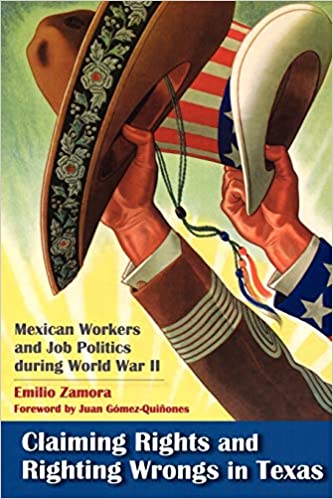
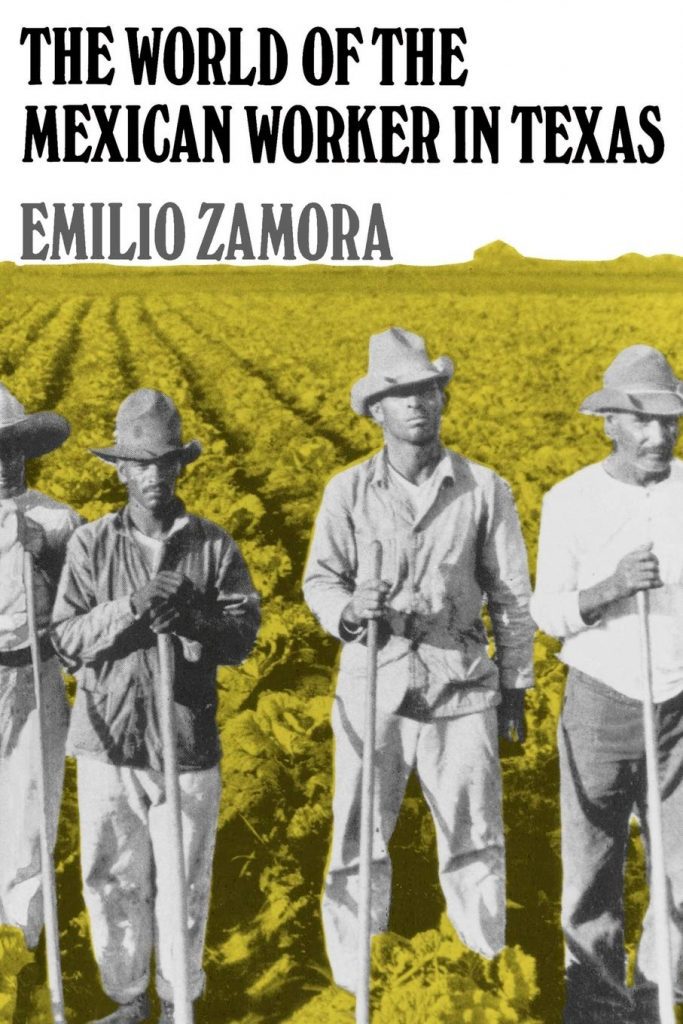

Claiming Rights and Righting Wrongs in Texas: Mexican Workers and Job Politics during World War II
In Claiming Rights and Righting Wrongs in Texas, Emilio Zamora traces the experiences of Mexican workers on the American home front during World War II as they moved from rural to urban areas and sought better-paying jobs in rapidly expanding industries. Contending that discrimination undermined job opportunities, Zamora investigates the intervention by Mexico in the treatment of workers, the U.S. State Department’s response, and Texas’ emergence as a key site for negotiating the application of the Good Neighbor Policy. He examines the role of women workers, the evolving political struggle, the rise of the liberal-urban coalition, and the conservative tradition in Texas. Zamora also looks closely at civil and labor rights–related efforts, implemented by the League of United Latin American Citizens (LULAC) and the Fair Employment Practice Committee.
Reviews and Praise
“Claiming Rights and Righting Wrongs in Texas is a strong example of clear thinking, clean writing, and nuanced analysis. As the author himself underscores, given the importance of this period for the history of Mexicans and Mexican-Americans in the United States, it is remarkable how little research has been done on the period between the end of the Great Depression and the early 1960s. Zamora’s exhaustively researched and dense analysis of developments in Texas should help fill this gap.”
David G. Gutiérrez, The Southwestern Historical Quarterly
“Zamora’s argument rests on an impressive array of sources, from labor market reports and FEPC records to Spanish-language newspapers and Mexican government documents. . . . His book encourages historians to rethink old interpretations and should be widely read.”
Kevin Allen Leonard, Journal of Social History
The World of the Mexican Worker in Texas
The twentieth century brought industrialization to Texas cities. For Mexican workers in the state, this meant worsening economic conditions, widespread discrimination, and an indifferent or at times hostile Anglo labor movement. Faced with such challenges, Mexicans often looked to each other or toward Mexico for support and inspiration in building a largely autonomous, occasionally trans-border labor movement. In this first book-length examination of the earliest organized efforts by Mexican-origin workers in Texas, Emilio Zamora challenges the usual, stereotypical depiction of Mexican workers as passive and hard to organize.
Instead, working within the framework of the “new labor history,” he looks beyond the conventional focus on trade unionism and collective bargaining to encompass the broader social experiences and culture of Mexicans as a national minority and a repressed segment of the working class.
Through extensive use of Spanish-language archives in Mexico and the United States, Zamora examines workers’ independent organizations–including mutual aid societies and cooperatives that functioned as unions–as well as spontaneous informal actions, including strikes, by Texas Mexican workers. He portrays the gradual yet increasing integration of those organizations into the mainstream labor movement and examines labor solidarity across ethnic lines. In addition, he discusses the special role Mexican labor played in bridging labor struggles across the international border and in challenging racial exclusion on the job in the predominantly Anglo labor federations and in the broader institutional life of South Texas.
Although the early efforts at inter-ethnic unity failed to materialize fully, Zamora concludes, they nevertheless provided a legacy that tells much about the minority position of the Mexican community, the impressive organizing activity and bid for incorporation of Mexican workers, and the ambivalent response by organized and unorganized Anglo workers.
Reviews and Praise
1993 T.R. Fehrenbach Award, presented by the Texas Historical Commission. 1994 H.L. Mitchell Award, presented by the Southern Historical Association.
“The work is meticulously documented, making use of previously unused Spanish-language archive materials. . . . Essential for Chicano and labor studies collections.”
Lisa K. Miller, Library Journal
“Based on key archival sources including Spanish-language newspapers as well as Texas labor records, Zamora has written a substantive and well-organized study of those Mexican immigrant workers who courageously organized themselves against both class and race/ethnic discrimination.”
Mario T. Garcia, The Journal of Southern History
“The originality of Zamora’s historical research contributes to uncovering the ‘voice’ of Mexican labor activity.”
Veronica Garcia, Contemporary Sociology
The views and opinions expressed in this article or video are those of the individual author(s) or presenter(s) and do not necessarily reflect the policy or views of the editors at Not Even Past, the UT Department of History, the University of Texas at Austin, or the UT System Board of Regents. Not Even Past is an online public history magazine rather than a peer-reviewed academic journal. While we make efforts to ensure that factual information in articles was obtained from reliable sources, Not Even Past is not responsible for any errors or omissions.
